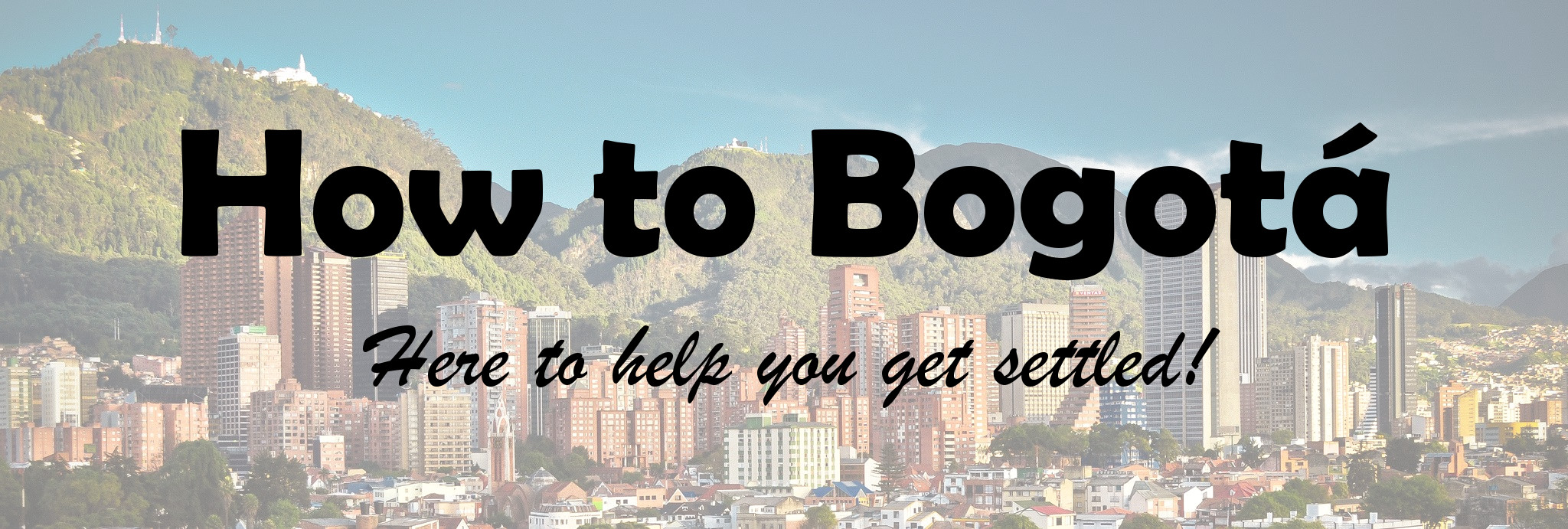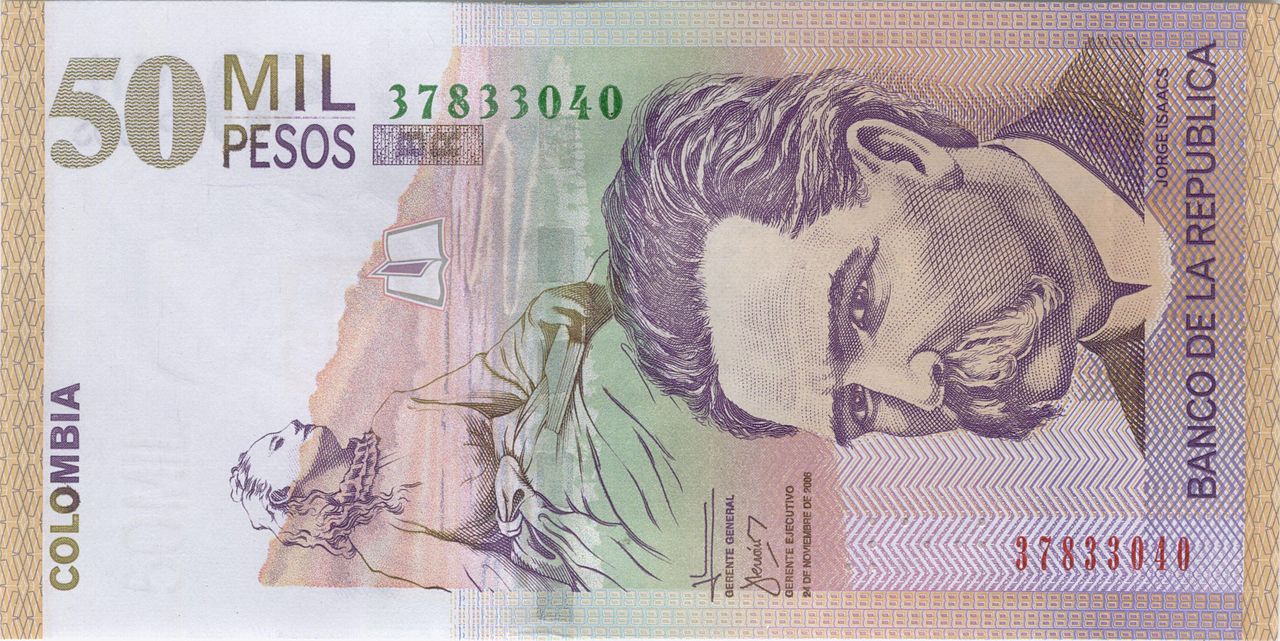Banks in Bogota
Banks in Bogota are somewhat of a culture-shock in themselves, for a number of reasons. Here, I tell of my experience of opening and having a bank account in Colombia.
Firstly, you will need your cédula (Colombian ID card) to open a bank account; the cédula is the main form of ID here, and if you think that your internationally-recognised passport should suffice – think again. Most Colombians don’t even have passports as they don’t have the means to leave Colombia (aside from the fact that most countries require Colombians to go through the lengthy bureaucratic process of applying for a visa just to be able to set foot on their territory). Anyway, you’ll only get an ID card once you have a valid visa to stay in Colombia (a partner, work or student visa). I’ve heard that Bancolombia will open an account for foreigners with just a passport, but make sure you go to a branch in the Zona T or Chicó. There are more foreigners living in these areas so banks will be more used to dealing with them (and therefore less likely to turn you away after insisting you need a cédula to open an account!).
Once you’ve managed to open a bank account, expect to be charged for EVERYTHING! This will certainly end up being the case if you don’t do your homework beforehand.
Here are some examples of the charges which I incur at Davivienda bank:
Monthly admin. fee just for having the bank account = $10,000 pesos (USD$5 / £3)
Charge for withdrawing money: $1400 ($0.70 / £0.40) and this is even if you’re withdrawing money from a Davivienda cash machine; you’ll be charged more if you withdraw from another bank!
0.4% tax: the bank charges 0.4% for every withdrawal (on top of the $1400 charge), or transfer to another account. This is a type of tax imposed by the government and will automatically apply UNLESS you specify when you open the account that this is your main bank account, in which case you will be exempt from this charge.
Replacement card: $10,000 pesos (USD$5 / £3). When I was pick-pocketed and I lost my bank card, I had to call and cancel the card, and then go to the bank to have a new one issued. Naively, it hadn’t occurred to me that there would be a charge for this, but, lo-and-behold, there it was on my bank statement a few weeks later – $10,000 for the new bank card.
Opening Hours
Banks are only open from 8.00 or 9.00am till 15.30pm, and most are closed or only open till midday on Saturdays. This means that if you work from 9 to 5 (or more likely 8 till 6 here) it can be very difficult to get to the bank when you need to. Many people will find themselves spending their lunch-hours in a bank queue (where they are probably foregoing their lunch too, as food and drink is not permitted in the bank), or take advantage of the fact that some employers allow employees to finish early on Fridays just so that they can run errands.. such as going to the bank during opening hours! When you go to the bank there will often be a long queue; but don’t expect to be able to browse Facebook or get to the next level in Candy Crush while you wait, because the use of mobile phones in banks is prohibited.
Dealing with foreigners
I’ve also found that many banks don’t really know what to do with foreigners. For example, when I needed a new bank card after having my purse stolen, they asked me for my Colombian ID. As my ID had also been in my purse, I explained that I couldn’t provide this until Migración issued me with a new one, which would take two weeks, and in the meantime I needed to have access to my bank account. I presented him with my passport and indicated that my Colombian visa also had my ID number written on it, so couldn’t they use my passport as ID instead? No, waste of time. I had to ask Fiscalía, the ID issuing office, for a temporary ID in the meantime. I explained that Fiscalia doesn’t issue IDs to foreigners, that Migración is responsible and that they don’t provide temporary IDs. Shrug of the shoulders. I’d have to wait till I had my ID then. No hay nada que hacer. (Nothing to be done). This was a Davivienda in Normandía, where very few, if any, expats live, so the branch clearly wasn’t used to dealing with foreigners. I went along to a branch opposite the Andino Center in the Zona T the next day (where there is a large foreign diplomatic and expat community), presented my passport, and had my new bank card in a matter of minutes. Having learned from this experience, I will now only go to banks in areas with large expat communities, as they’re much more helpful towards foreigners in trouble!
When you’re used to the UK banking system, where there are banks which will actually PAY YOU to open a bank account with them and REIMBURSE YOU if you become the victim of fraud, banking in Colombia can be quite a sobering experience. But as with most things in Colombia, you just have to approach the situation with a healthy dose of patience and perseverance!






dear Naomi
you said you heard of banks which will open accounts for expats with a passport, is it even possible? can you let me know more about these?
Hi Johana, I have heard that you can open a bank account with just a passport at Bancolombia. But I would recommend going to a branch in the Zona T, where more expats live. The problem is that many of the advisors in the bank either don’t realise you can open an account with a passport, or they don’t know how to open an account in this way, so they just tell you that it’s not possible. But banks near the Zona T will be used to dealing with foreigners, and are more likely to help you. If they say it’s not possible, ask to speak to the ‘Director’ of the bank. I know that people have opened Bancolombia accounts with just a passport, so it MUST be possible! 🙂 Good luck!
I just opened a bank account at Davivienda with only my passport. I went to a couple banks and a girl at BBVA wouldn’t even let me speak to the director and kept bullshitting me. But I convinced a lady at Davivienda to do it for me